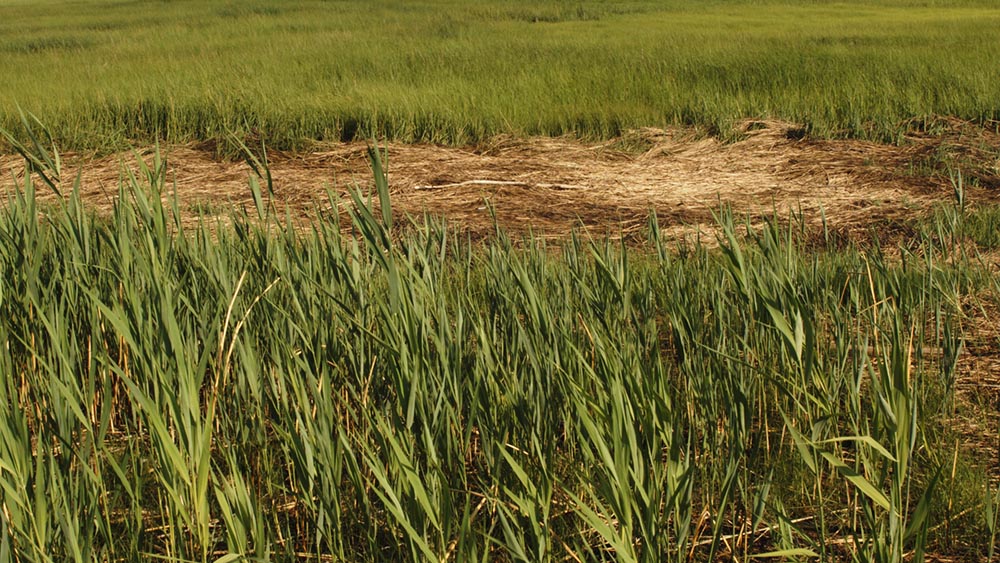One scene from an unfinished play about Timur the Great from Hamid Ismailov’s unpublished novel Russian Matryoshka.
An endless farm field. In the field, a PEASANT recites a prayer. He sends his prayer to the heavens. He finishes praying, and while repeating “There is no god but God and Muhammad is His Prophet,” he takes up his scythe again. He is cutting wheat. We see sheaves behind him.
Noise of horse’s hooves. A RIDER in a hurry rushes onstage.
RIDER: Serf! Why do you not greet Mahmud-bek the warrior!? Have you forgotten your own master, like a mangy dog?
(The PEASANT goes on mowing.)
RIDER: May Allah strike you blind if you spit in your master’s pot while eating his bread. (Gathers sheaves into a sack.) And it is not to your kindhearted master that you will answer for your wickedness and cruel thoughts, contrary to the will of the Lord, but to Allah Himself. And God will not forgive you on your final day, and will record this in his list of your evil deeds. Remember what I tell you, vile serf. (Exits, muttering angrily, sack slung over his shoulder.)
(The PEASANT looks around, straightens the last scattered bundles of wheat, again says “There is no god but God and Muhammad is His Prophet,” and gets back to work.
Approaching noise. A MULLAH runs onstage wearing a long robe and neatly wrapped turban. He looks impeccable.)
MULLAH: Speak, Allah, have mercy, chaos, great chaos, pestilence, plague, cholera, and it is all one: human strife that You have unleashed, have mercy, Almighty, on Your slaves. (He sees the PEASANT. Pause, then he tiptoes toward him.)
MULLAH: Slave of God, repent, terrible is the wrath of God. He has sent down chaos into the world. Pray, sinner! Beg forgiveness, for all the sins of those like you have together flooded the earth with discord unheard of! Repent before it is too late. Fire consumes the mosque, the fire has leapt upon it from your houses, infidels, it burns, the house of God burns, the treasury burns that was built in Allah’s name and for His glory, everything burns . . . (Sees the sheaves of wheat.) But God is merciful, God is charitable to those who renounce themselves and take the path of the righteous and virtuous. (Collects some sheaves.) In the name of God, the Mighty and Merciful, in the name of the Almighty . . . (Murmuring prayers, disappears.)
(The PEASANT quietly reties the bundles of wheat scattered and left behind by the MULLAH, and saying “There is no god but God and Muhammad is His Prophet,” he returns to his everyday labor. Again, the sound of hoofbeats. Again, a man on horseback, but a different one. He approaches. He takes a closer look.)
RIDER: Black worm, you who are always digging in the dirt, lift your snout and catch a whiff of the times. You with your humped back, earthbound and vulgar, what does a man deserve, and what is a man worth? O unfortunate one, why does your hand, which could hold a sword, tremble at the sight of one? (The PEASANT works.)
You will answer me as if answering your master, because your hand holds a curved scythe, not a fateful sword under the banners of Bayan-kuli, who slit the throat of that fat-bottomed slug Mahmud-bek. Allah put his own punishing sword in his hand, and so it will be henceforth with any miscreant presuming to infringe on the will of the Lord! (Sees the sheaves of wheat.) You unwaking sluggard, you who have mown only four sheaves’ worth this whole God-given day, only the whip can spur you on. If I were your master . . .
(He collects the sheaves.) Be warned, Bayan-kuli has no love for the lazy. (Exits.)
(The PEASANT ties up the last remaining bundle of wheat and says: “There is no god but God and Muhammad is His Prophet.” Then he stands still in prayer.
His WIFE comes, carrying a knotted bundle. Behind her, his small eyes peeking around her, is their CHILD. They stop. The CHILD tries to rush to PEASANT, but the WIFE grabs him. The CHILD squeals and laughs. The WIFE tries fretfully to quiet him. Finally the PEASANT finishes praying and as he utters the words “There is no god but God,” the CHILD throws himself at him with all his might, and they both squeal in happiness. The WIFE stands off to the side and smiles at them. Then she leaves them to their own devices, unties the bundle, spreads the cloth on the ground, and sets out flatbread and some kind of gruel in a ceramic bowl. Everyone sits. It is growing dark.)
WIFE: They say Mahmud-bek burned down a whole village this day. They say he was killed. May God save him.
CHILD: God is good, right, Mama?
PEASANT: Who is our master now?
WIFE: They say it’s Bayan-kuli.
(The PEASANT enjoys his last hunk of bread, blissfully sips some water, and then, saying “There is no god but God,” he begins the evening prayer. The WIFE and CHILD gather the remnants of the meal, tie the cloth into a bundle, and leave. The CHILD fusses and whines that he is cold. His cries fade. Behind them, a howling wind gradually rises, and suddenly a gust scatters the last bundle of wheat. The PEASANT prays: “There is no god but God . . .”)
(Curtain.)

